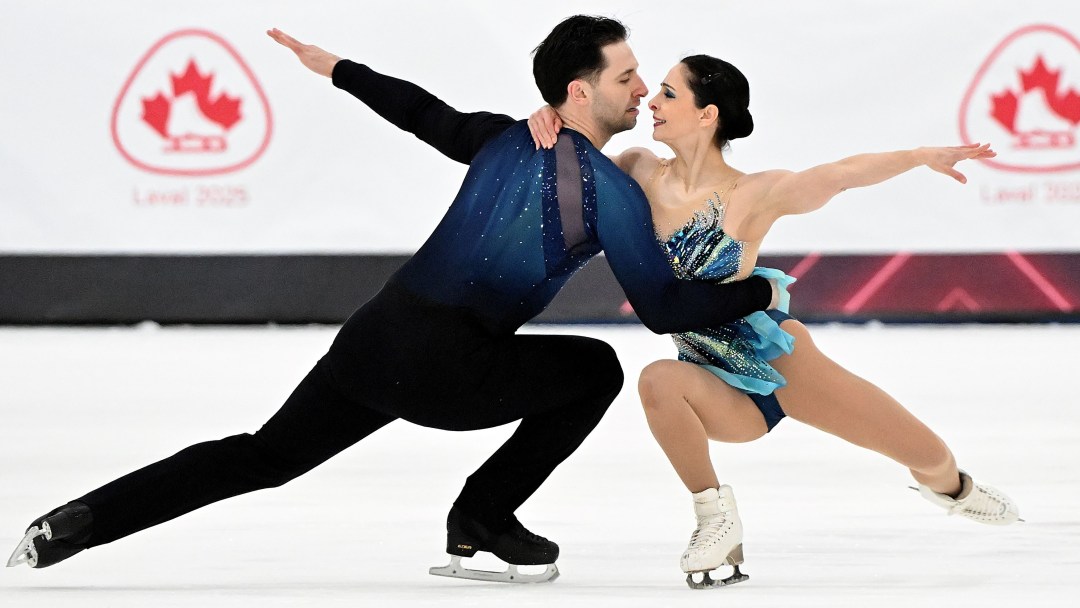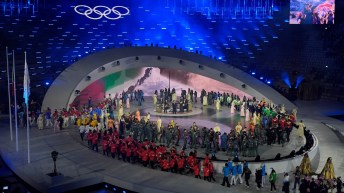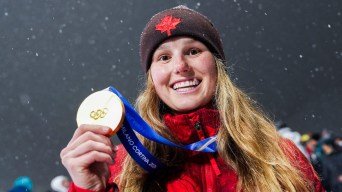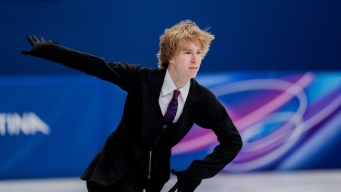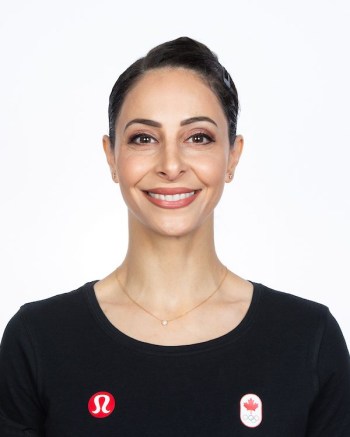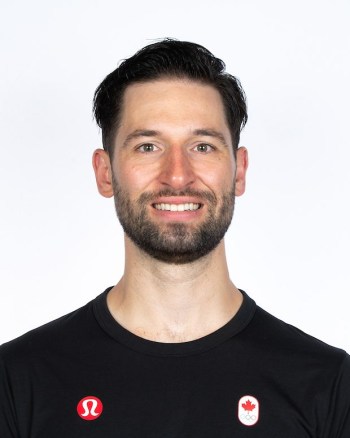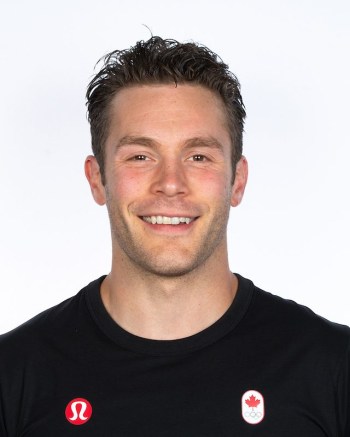From champions back to challengers: Stellato-Dudek & Deschamps set to chase Olympic medal dreams
“Having our competitors think that we’re not going to be trouble this year pleases me to no end, because I love to shock people.”
Deanna Stellato-Dudek is quite blunt when asked how she and partner Maxime Deschamps dealt with carrying the title of world champions last season: “not great.”
Winning a world title, let alone winning it in front of a sellout crowd in their hometown, brought with it a wealth of opportunities, but also some unique, unforeseen challenges as they had to navigate a new normal.
At the 2024 ISU World Figure Skating Championships in Montreal, Stellato-Dudek—at 40 years old—became the oldest woman to ever win a world title in any figure skating discipline. With his ninth partner, Deschamps achieved what had once seemed an impossible dream.
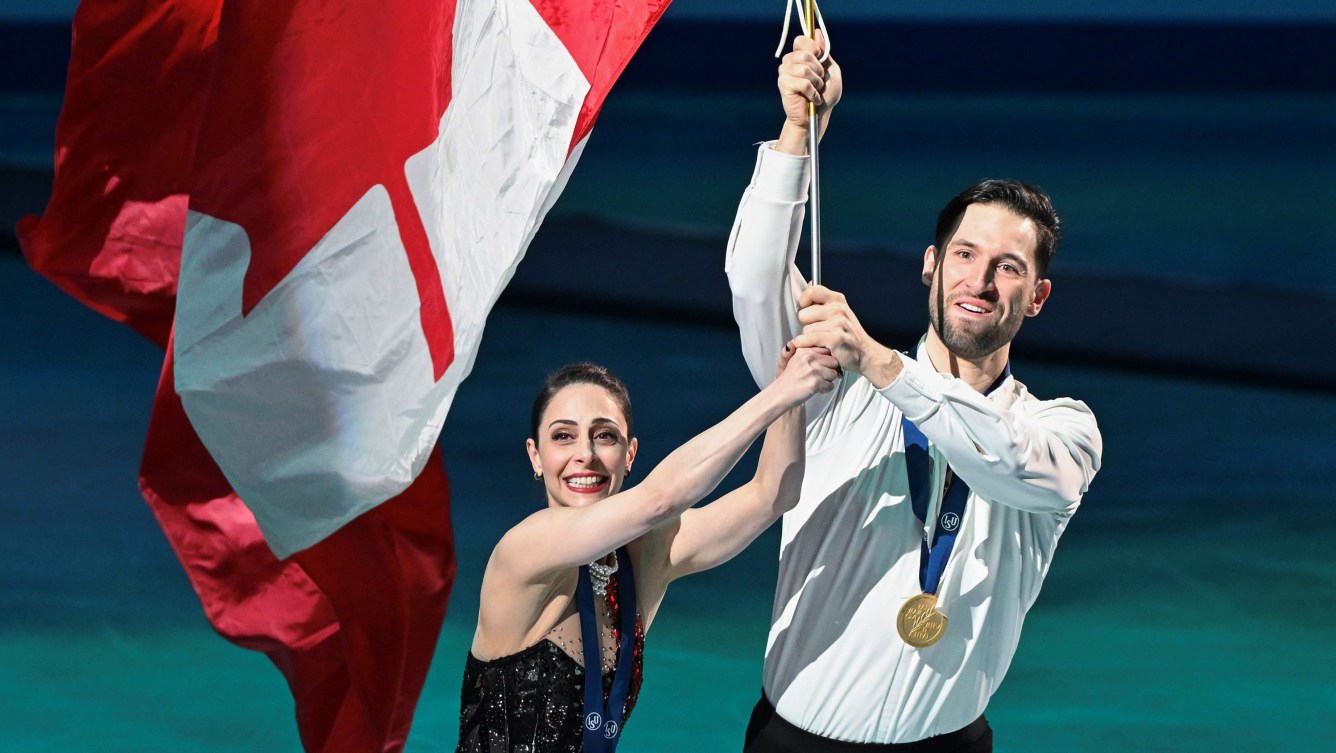
Suddenly, they were under a very bright spotlight. They were invited to appear on the Radio-Canada talk show Tout le monde en parle. They toured across Japan and Canada with Stars on Ice.
And in trying to follow up their history-making moment, Stellato-Dudek said “I think we might have bitten off more than we could chew” during the 2024-25 season.
In what they now recognize as a “strategic error,” they changed up how they did many of their elements with the aim of looking fresh. But that led to them making a lot of errors in what would be an erratic season. At the world championships this past spring, they were off the podium in fifth place.
“After the world championships, Max and I, we sat and had a conversation and we both felt exactly the same. We’ve gone from champion back to challenger. And it’s in those difficult moments when you get the opportunity and the fire to rise again. And neither one of us have ever been so motivated,” Stellato-Dudek said of their mindset for this Olympic season.
“We love to chase people. That’s where we are good at. And the people, they don’t want us to chase them,” added Deschamps.
While logically they knew that they weren’t really defending a world title last season (“It’s just another event,” said Stellato-Dudek), the amount that it was talked about made it difficult to tune out. There is no doubt, however, that they are happy to once again be a team on the attack.
“That’s how we won our world championship. And now we’re back in that mental state, which I think is really perfect for us,” said Stellato-Dudek. “If there’s one team that you shouldn’t count out and there’s one team that you don’t want nipping at your heels, it’s Maxime and I.”
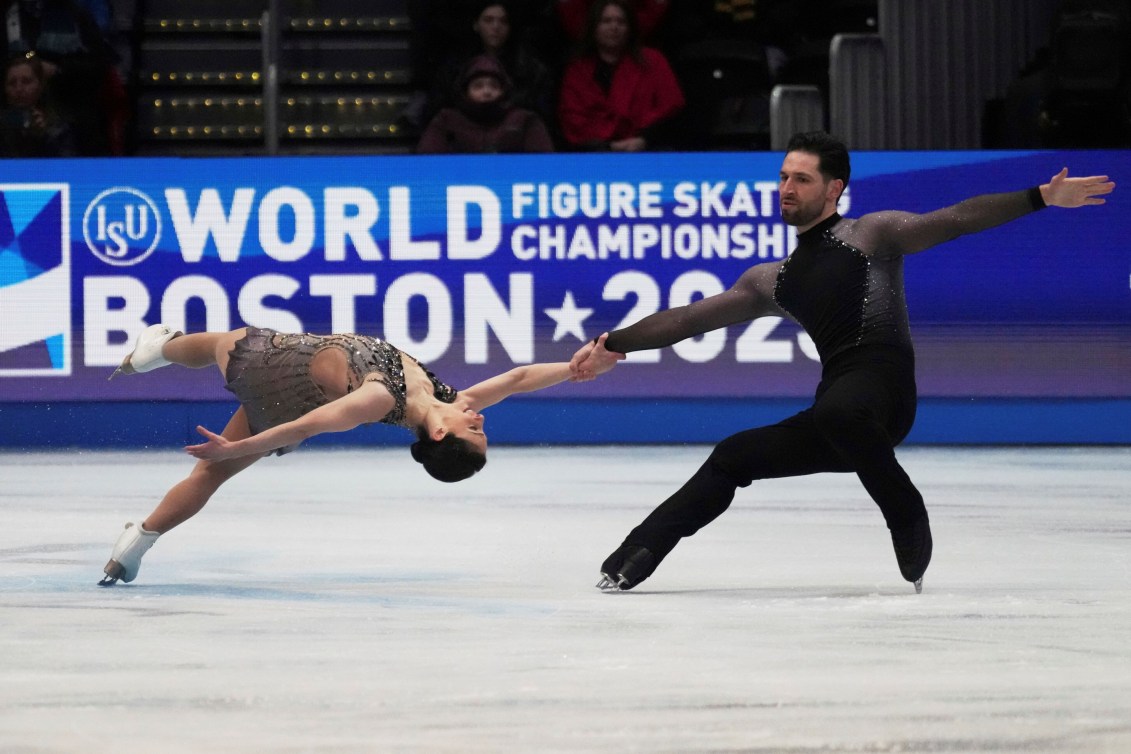
Putting a technical plan in place
Figure skating is loved for its magical mix of difficult technical elements and diverse artistic presentation. But the results often come down to pure math. Stellato-Dudek and Deschamps did a “thorough analysis” of last season’s numbers to see what that could tell them about their pathway to success this season.
“So our free program for instance, we have 11 elements. We were first or second on six. That’s more than half. But it also makes it super clear where we need to pick up the slack. And it was pretty clear that this year it was on the jumps,” Stellato-Dudek explained.
Aside from just being more consistent with their cleanliness, the pair also noted the necessity of including a big three-jump sequence (in their case, triple toe-double axel-double axel) in their free skate to match what other top medal-contending teams are attempting.
“Max and I, when we go to the Olympics, we want to win. And of course, we would love to have a medal. And when we do, we’re going to make history. This is our time. We have this moment, This is it. So we’re going to do all the work that’s required to get to the top of that mountain,” Stellato-Dudek said emphatically.
They unveiled their programs for the Olympic season at an ISU Challenger Series event in New York City in early September. The short program—to the epic “Carmina Burana” in which Deschamps plays the god of fate awakening Stellato-Dudek, the goddess of fortune—includes an exciting new element that has never been performed on Olympic ice: an assisted backflip.
Though it’s not an element that will be scored for technical difficulty, backflips no longer carry a two-point deduction after being allowed in competitive programs last season. This one is intended to create a wow moment at Milano Cortina 2026.
It was Stellato-Dudek’s idea, one that Deschamps initially thought was “crazy” as he was concerned about the potential for injury. But his partner convinced him to give it a try at a gymnasium where they were coached by Rio 2016 Olympian in artistic gymnastics, Rose-Kaying Woo. After they were successful on their first day, Deschamps quickly came around to progressing it to skates and ice.
“Max and I almost every year we’ve done something that nobody else does. Sometimes it gets copied, sometimes it doesn’t, but I don’t think this is going to be copied anytime soon,” said Stellato-Dudek.
Getting a fresh artistic perspective
Both of their programs this season were choreographed by Lori Nichol, the Canadian who gained great fame and accolades for her work with American star Michelle Kwan in the late 1990s.
It was a working relationship that had been a long time coming.
“I was supposed to work with her when I was a singles skater, because my coach actually taught her,” said Stellato-Dudek, referencing her “1.0 career” that saw her win a silver medal at the 2000 World Junior Championships before injuries forced her to retire. “I told that to Maxime at our tryout and Maxime goes, ‘Oh I’ve always wanted to work with her, too.’ So we made the determination, if we ever have the opportunity, that we would love to work with her and this year was the perfect year to do it.”
Out of a choreographic process they described as a “really nice collaborative effort” came “two magical masterpieces,” says Stellato-Dudek.
“I always want to do stuff like dancers. I feel like the really good dancers you blink and their program is over. And it’s been four minutes and 10 seconds. And I’ve always wanted programs in that way for pairs as well,” she explained.
Their free skate is “Amor Dulce Muerte,” a piece of Spanish music by flamenco composer and guitarist Vicente Amigo.
“We are lovers skating to his music. And his music is based on a Spanish poet, Rafael Alberti,” said Stellato-Dudek. “There’s a lot of power and passion in the program, but the constant is love and love is guiding each step of the program.”
Doing whatever needs to be done
For Deschamps, the work they put in to prepare for competition is just as much an indicator of success as the results they achieve. For Stellato-Dudek, who returned to competitive sport at age 33 after 16 years away, that has meant forging a path that no figure skater before her has taken.
“I had to do a lot of trial and error on my own because there was no path laid out for me of how to deal with this, of what to do in practice, what to do at home, how to mitigate soreness,” she said. “I did a lot of my own research, purchased a lot of devices, tried a lot of things and now I have it down to a science. By no means do I eliminate soreness from my 42-year-old body, but I’m able to control it to a point where I can be the freshest I can be every morning for my team and for my coaches and, most importantly, for myself.”
For as long as they compete, her age will always be a topic. But it’s one she’s happy to talk about, especially when it comes to how her success might inspire others.
“Young girls and especially women and women like me who are in their 40s, you’re just expected at a certain point in time to give up on your pursuits in life, on your dreams, on your passions, and just take up less space in the world,” she reflected. “I would love to get a medal and love to win, to send this message worldwide to not recoil, stand your ground. Stay steadfast in your pursuits and your dreams and your passion and believe in yourself and that you know you too can have success at any age.
“The message I want to send to all my other homies in their 40s that are female is take up all the space, take up all the space.”
Olympic Rapid Fire with Deanna and Maxime
What is your first memory of the Olympic Games?
Maxime: “2002, there I was watching Elvis Stojko, Jamie Sale, David Pelletier and it’s at that moment I was like this is where I’m going to be eventually.”
Deanna: “For me it was the 1994 Lillehammer Olympics. We had Ekaterina Gordeeva and Sergei Grinkov come back and win that Olympics in pairs. And our coach coached Isabelle Brasseur and Lloyd Eisler to bronze at that Olympics. And then that was the Olympics where Oksana Baiul won the gold and Nancy Kerrigan was second. A few years later, when I was a junior skater, I got to go to a Junior Grand Prix at Lillehammer in that exact same rink and stand on the same podium that everybody at the Olympics stood on. And I won that event and took it as an omen that there are good things to come for me.”

